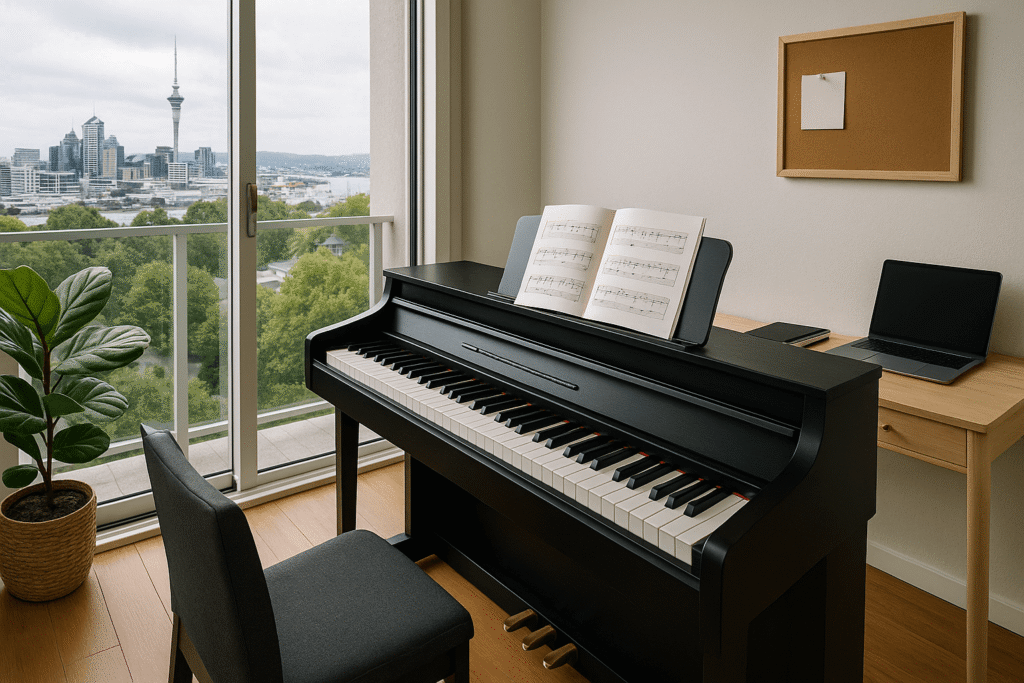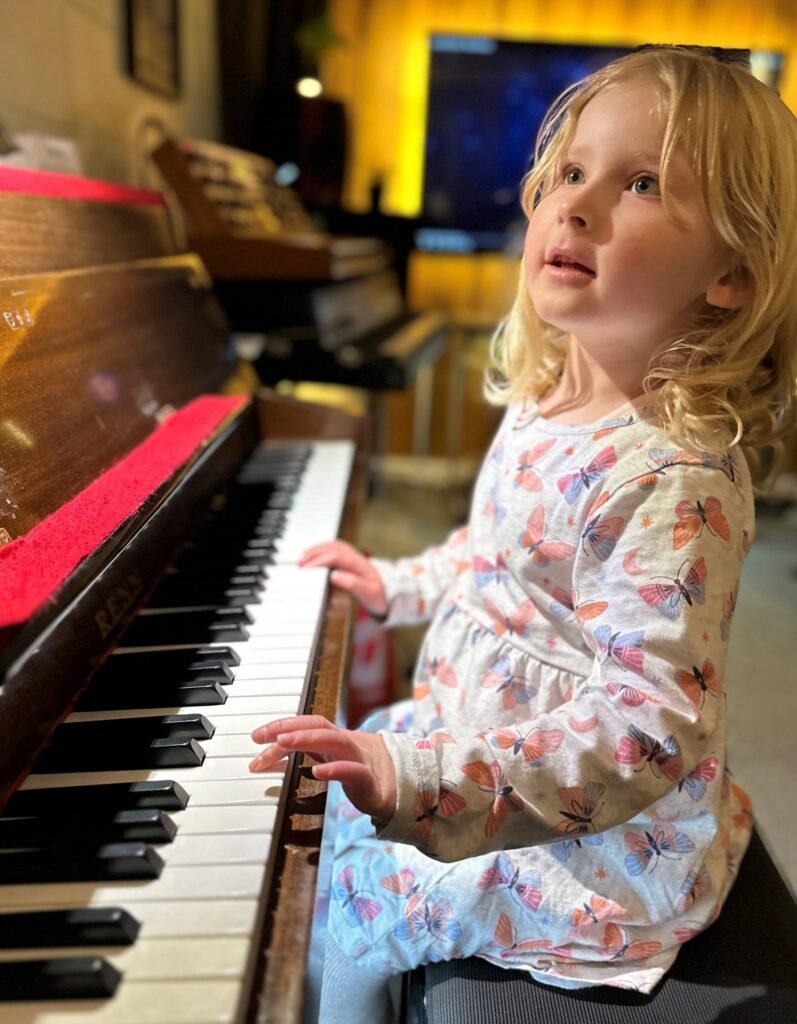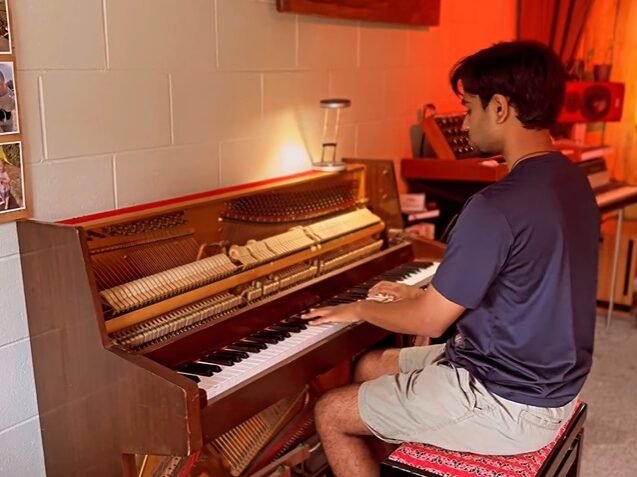Your first piano lesson is a crucial step in your musical journey, setting the tone for your learning experience. In Auckland, Timothy William offers a comprehensive introduction designed to build your confidence and foundational skills.
- Introduction
- Understanding the Piano
- Preparing for Your First Lesson
- Why Choose Timothy William for Your First Piano Lesson
- Frequently Asked Questions
- What should I expect during my first piano lesson?
- Do I need to have my own piano at home?
- How often should I practice between lessons?
- What age is suitable to start piano lessons?
- Does learning the piano require reading music?
- What kind of music will I learn initially?
- Are online piano lessons effective?
- How can learning the piano benefit me?
Embarking on your first piano lesson is a momentous occasion that marks the beginning of an enriching musical journey. It is more than just learning to play notes; it is about developing a deeper appreciation for music and unleashing your creative potential. Timothy William, a distinguished piano teacher based in Auckland, New Zealand, offers expert guidance to set you on the right path. This guide serves as your ultimate companion, preparing you for what lies ahead in your musical education.
Understanding the Journey
Your initial piano lesson is not merely an introduction to an instrument; it’s the foundation upon which your musical prowess will be built. This first step is crucial in setting the pace and tone for your learning experience. With the right approach, you can cultivate a lifelong passion for music and develop skills that extend beyond the piano itself.
Setting Expectations
It’s essential to approach your first piano lesson with clear expectations and an open mind. During this initial session, you will likely explore the piano’s layout, learn basic hand positioning, and perhaps even play simple melodies. The key is to remain patient, as mastering the piano is a gradual process. Your instructor, like those at Timothy William’s studio, will tailor the lesson to your individual pace, ensuring a comfortable and encouraging environment.
Choosing the Right Teacher
Selecting the right instructor can significantly impact your learning experience. A competent teacher will not only impart essential techniques and theoretical knowledge but also inspire and motivate you. Timothy William stands out as a mentor who combines expertise with a passion for teaching, making each lesson both educational and enjoyable.
In summary, beginning your piano journey involves understanding the scope of what lies ahead, setting realistic expectations, and choosing a teacher who aligns with your learning style. With these elements in place, your first piano lesson will be a positive and productive experience.
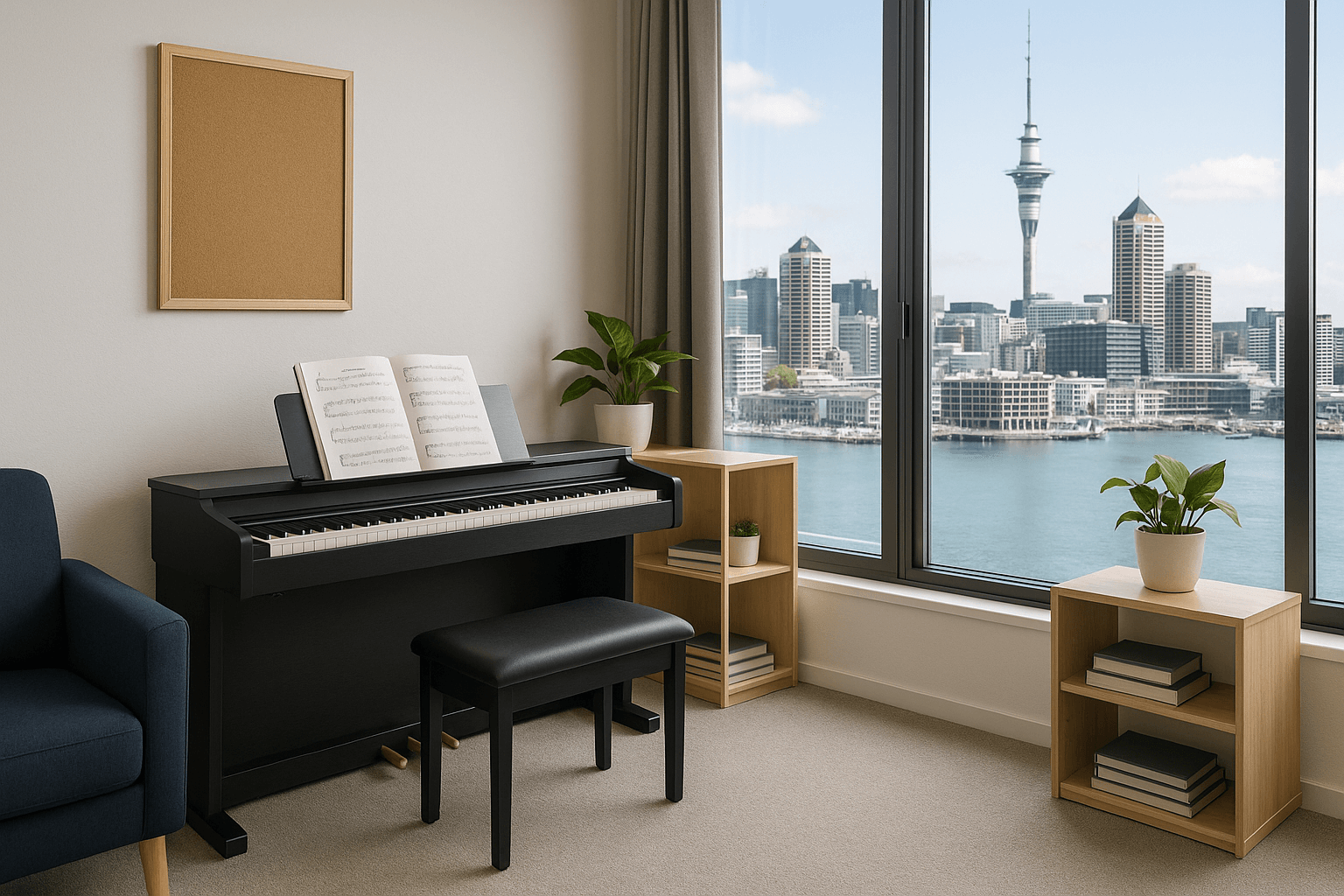
Understanding the Piano
Embarking on your journey with the piano starts with a fundamental understanding of the instrument itself. Before you can dive into playing melodies, it’s essential to familiarise yourself with the piano’s layout and the role each component plays. The piano is much more than just keys; it’s an intricate instrument designed to create beautiful melodies.
Piano Layout and Keys
The piano keyboard is comprised of 88 keys, which are a combination of both white and black keys. The white keys represent the seven natural notes in music: A, B, C, D, E, F, and G. Meanwhile, the black keys are grouped in twos and threes, creating a pattern that repeats across the keyboard. These black keys are used to play sharp or flat notes. Understanding this layout is crucial for reading sheet music and forming chords. Familiarise yourself with middle C, which often serves as a reference point during your first lessons and is located near the centre of all keyboards. By recognising the position of C and its related group of keys, you are establishing a strong foundation for your music education.
Mechanics of the Piano
Understanding the mechanics of how a piano produces sound can deepen your appreciation for the instrument. When you press a key, a felt-covered hammer strikes a string inside the piano, producing a sound. The use of a pedal can also affect the sound, with the damper pedal, most commonly used in beginners’ lessons, sustaining notes to create more resonant melodies. The condition and tuning of the piano also play a vital role in the sound quality produced, so ensure your piano is well-maintained, especially for beginners like yourself who are learning to distinguish between different notes and pitches.
The Role of Timothy William
As a trusted piano teacher in Auckland, New Zealand, Timothy William offers an insightful introduction to the piano through a structured and personalised approach. His guidance ensures that each student not only learns how to play but also develops an appreciation for the artistry involved. By sharing expert tips and hands-on experience, Timothy enhances your understanding and enjoyment of learning the piano. Ensure you communicate any concerns or questions you may have with him to tailor each lesson to your specific learning pace and style.
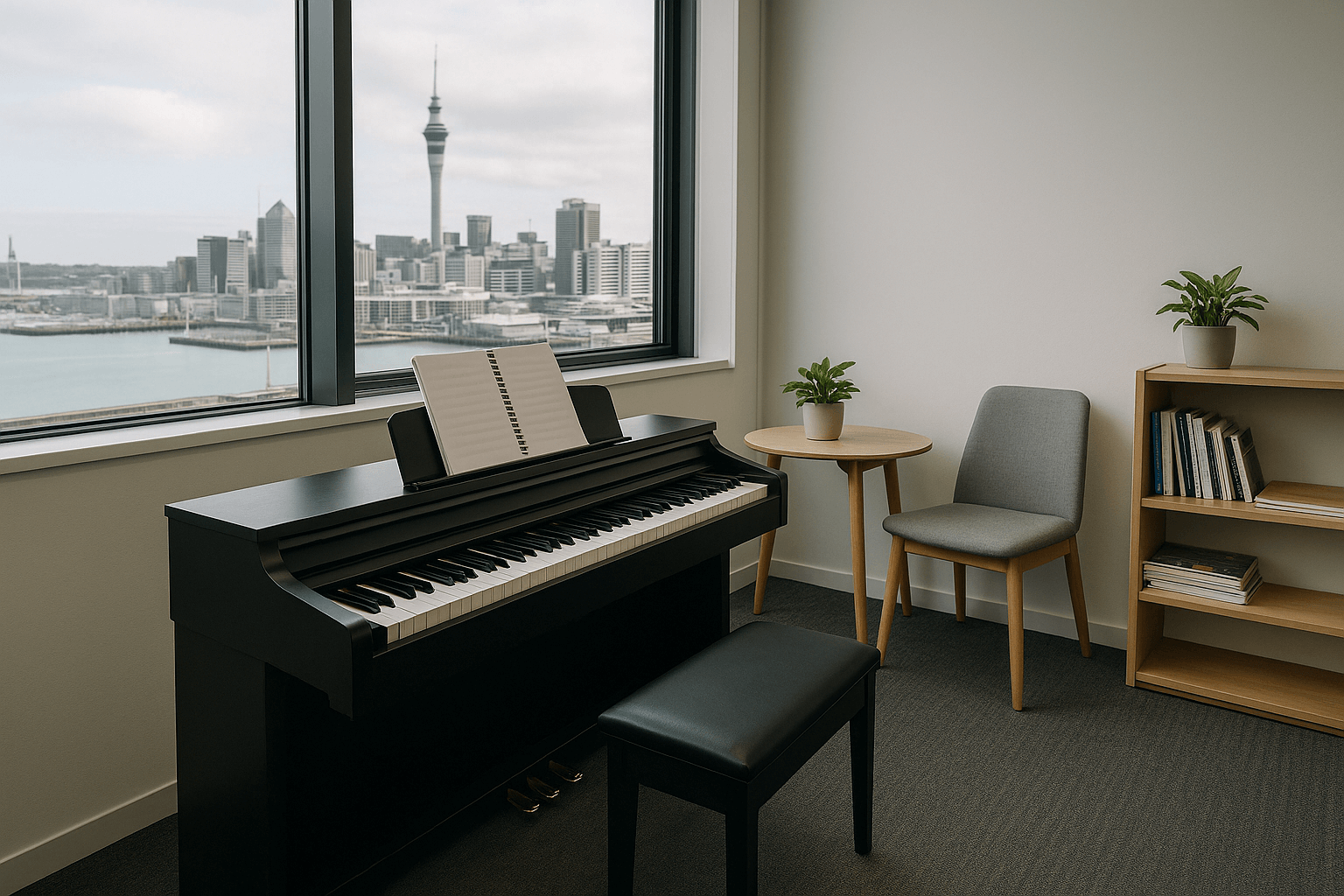
Preparing for Your First Lesson
Embarking on your piano journey requires some thoughtful preparation to ensure a rewarding experience. After grasping the basics of the piano from the previous section, it’s time to focus on the practical steps you can take to get the most out of your initial learning sessions.
Selecting the Right Materials
Before you attend your first piano lesson, it’s crucial to have the appropriate materials on hand. These items include a beginner’s piano book suited to your skill level, a notebook for jotting down new concepts, and a metronome, which will assist with rhythm and timing. Each of these tools will play a pivotal role in your learning process. Selecting a book that aligns with your interests, whether it’s classical pieces or modern hits, can motivate your practice sessions. Timothy William often recommends books that cater to the individual preferences of his students in Auckland, ensuring enjoyment alongside education.
Setting Up Your Practice Space
Your practice environment significantly impacts your ability to concentrate and make progress during your piano lessons. Aim for a clutter-free space with good lighting and a sturdy piano bench. It’s important to position your piano away from household noise to minimise distractions. Furthermore, consider setting up a small area where you can keep all of your materials organised and within reach. Creating a dedicated, serene space for practice can make your sessions more productive and enjoyable.
Establishing a Practice Routine
Consistency is key when learning a new instrument. Developing a practice routine that suits your personal schedule is essential. Initially, try to integrate short, focused practice sessions daily rather than sporadic, lengthy ones. This approach aids in skill retention and minimizes fatigue. Decide on a regular time each day to practice and ensure you stick to this commitment. Even a fifteen-minute session can make a world of difference if it’s consistent. Timothy William emphasises the importance of regular practice to his Auckland-based students, fostering steady progression.
By preparing appropriately for your first lesson and setting up an ideal learning environment, you’re well on your way to mastering the fundamentals of piano playing. The next section will explore why choosing Timothy William for your first piano lesson is a beneficial decision.
Why Choose Timothy William for Your First Piano Lesson
Choosing the right piano teacher is a crucial step in your musical journey, and Timothy William stands out as the ideal instructor for aspiring pianists in Auckland. With a deep-rooted passion for music and a dedicated teaching approach, Timothy ensures that each student embarks on their piano-playing adventure with the right foundation.
Experienced Local Experts
Timothy William has been nurturing talent in the vibrant city of Auckland for years, bringing both expertise and a personal touch to piano teaching. His extensive experience in music education makes him uniquely qualified to guide students through their first piano lesson with confidence and ease. By understanding the local culture and individual needs of his students, Timothy crafts personalised lessons that resonate well with beginners.
What Sets Us Apart
Timothy William’s teaching style is distinctively interactive and encouraging, making learning both enjoyable and effective. He employs a variety of innovative methods that cater to different learning styles, ensuring that every student’s experience is tailored to their unique musical preferences and skill levels. Additionally, his commitment to continuous improvement means that he stays updated with the latest teaching techniques to offer top-notch education. Located conveniently in Auckland, Timothy provides accessible and flexible scheduling options to meet the demands of today’s busy learners. Whether you’re a local or just looking for an expert piano teacher in Auckland, his responsiveness and adaptability make him a preferred choice.
Timothy’s reputation speaks volumes; countless students have successfully transitioned from novices to confident pianists under his guidance. His friendly and patient demeanor creates a supportive learning environment, leading to positive and enriching experiences for all his students.
As you prepare to immerse yourself in the world of piano music, choose a mentor who not only understands the complexities of the instrument but also knows how to simplify them for beginners. Timothy William is that mentor, ready to accompany you on a melodic journey.
Your first piano lesson is just the beginning, and making an informed choice is essential. In the next section, we will address key queries related to starting your piano lessons, helping you approach this milestone with clarity and assurance.
Frequently Asked Questions
What should I expect during my first piano lesson?
During your first piano lesson, you will be introduced to basic piano techniques, learn how to sit and hold your hands properly, and likely start with some simple exercises. It’s a relaxed session aimed at getting you comfortable with the instrument and setting the foundation for further learning.
Do I need to have my own piano at home?
While it’s beneficial to have access to a piano for regular practice at home, newcomers can start lessons without owning one. Many students begin by practising on a digital keyboard or use practice facilities before committing to a full-sized piano.
How often should I practice between lessons?
Consistency is key to progress in learning the piano. Ideally, practising for at least 15-30 minutes a day can significantly enhance your skills, making each next lesson more productive and enjoyable.
What age is suitable to start piano lessons?
Children as young as four can begin learning the piano, though it depends on individual attention span and interest. Adults of any age are also warmly encouraged to start, as it’s never too late to explore your musical side.
Does learning the piano require reading music?
While reading music is a helpful skill, it’s not mandatory to start learning the piano. Many beginners start with basic songs and exercises that help develop their ear before gradually learning to read music.
What kind of music will I learn initially?
In your early piano lessons, you’ll be introduced to simple pieces, often from classical, pop, or folk genres. Your teacher will select material that aligns with your interests to keep you motivated and engaged.
Are online piano lessons effective?
Yes, online piano lessons can be very effective, especially with advances in technology. They provide flexible scheduling options and access to high-quality instruction that can be just as beneficial as in-person lessons.
How can learning the piano benefit me?
Learning the piano enhances cognitive skills, promotes discipline, boosts creativity, and can significantly reduce stress. It’s a fulfilling pursuit that offers lifelong benefits, culturally and personally, right here in Auckland and beyond.

